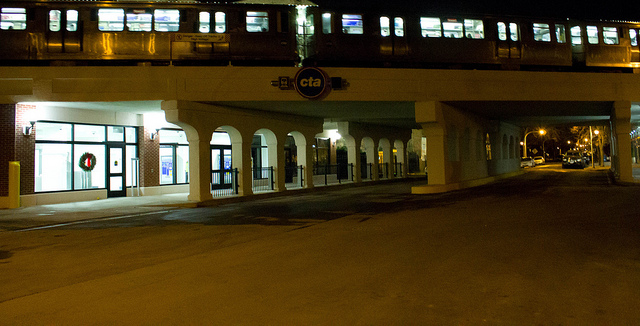Private Sector Jumps On Investing In CTA Infrastructure Projects
By Chuck Sudo in News on Jan 29, 2013 7:25PM

The first train at the newly rehabbed Jarvis Red Line station, December 2012. (Photo credit: Brad Perkins)
Tribune transportation reporter John Hilkevitch writes about the “enthusiastic” response from companies about partnering with the Chicago Transit Authority on infrastructure projects including extending the Red Line to 130th Street and investing in upgrading the tracks and viaducts on the Red Line’s North Branch, once it comes time to do that.
CTA President Forrest Claypool told a group of transportation experts at Northwestern University the agency and financial adviser Goldman-Sachs are studying public-private partnerships to offset the costs for the long-stalled projects. CTA estimates it will cost between $2-$4 billion to upgrade the Red Line’s North Branch, while it would cost $1.5 billion to extend the Red Line from 95th Street to 130th Street.
"We believe that partnerships with the private sector are one piece of the key to keeping mass transit healthy,'' especially in a period of declining federal and state funding, Claypool said.
If there’s anything we’ve learned in the past five years it’s that Goldman-Sachs has the public’s best interests at heart. (End sarcasm.) That said, Claypool and CTA would not be doing their jobs if they didn’t look at every angle to fund these projects in an age of declining state and federal funding for public transit.
Claypool stressed that privatizing or selling off the agency’s rail system was non-negotiable. But they are interested in entering into more partnerships like Ventra, the shared fare payment system CTA and Pace suburban bus service will switch to in 2014. The deal with Cubic Transportation Systems effectively takes CTA and Pace out of the business of fare collection.
But Samara Barend, a vice president and strategic development director at technical and management support services firm AECOM, said these partnerships are not a substitute for replacing declining public funding.